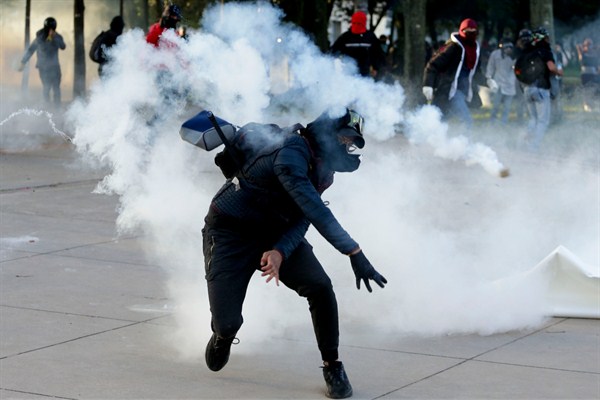Making sense of the world these days can be daunting. Across a swath of wildly disparate countries in the Middle East and South America, popular protests have shaken the foundations of both democratic governments and dictatorships alike. Western democracies haven’t been immune to these systemic shocks, ranging from resurgent—and in some cases triumphant—populist movements to repeatedly inconclusive elections and precarious governing coalitions.
All this upheaval has called into question the tenets of the liberal international order that have guided global elites and policymakers over the past three decades. At first glance, it would seem we have entered a new historical period. But it’s unclear how to characterize it, and whether it represents a ripple or a rupture with what came before.
The complexity and internal contradictions of the forces driving political developments in a single country, to say nothing of the entire world, make any effort to articulate a coherent narrative an exercise in simplification. Take the U.S.-led liberal international order that has ostensibly served as a framework for understanding international relations in the post-Cold War era. Some have argued that it is not a fitting description of an international arena that has been neither liberal nor ordered. Others have pointed out that, even if it arguably did exist, its norms were as often as not honored in the breach, particularly by the United States.

